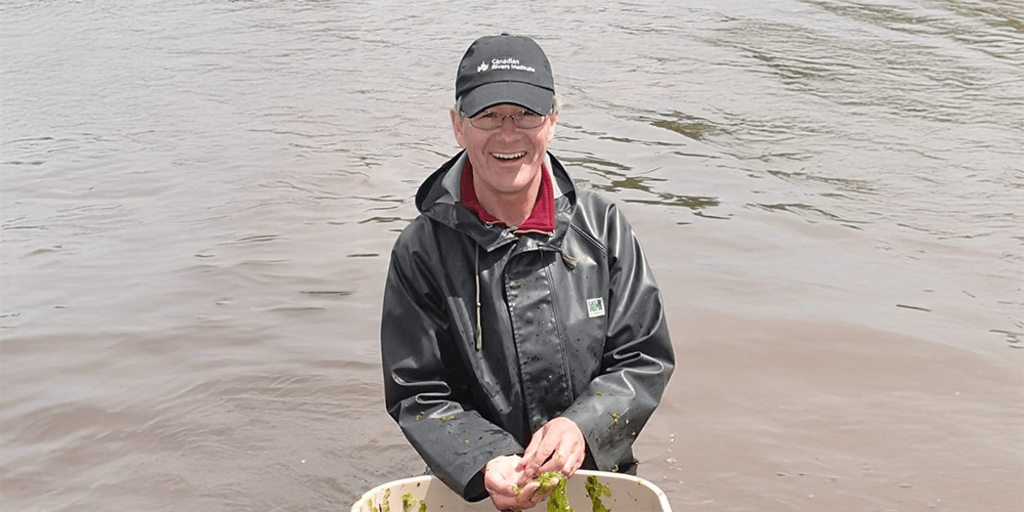Environment students help advance reconciliation through best practices research
Estimated reading time: 3 minutes | Written by: Amanda St. Marie
Over the past academic year, four graduating students from the Environment and Business program at the University of Waterloo have demonstrated the powerful impact of student-led research and collaboration. As part of their final capstone course, Lina Wilson, Cove Young, Sarah Fencott, and Megan Aucoin developed a best practices final report to support the creation of a reconciliation action plan for the Faculty of Environment.
Their project, undertaken as part of ENBUS 402A/B, focused on exploring key challenges and opportunities for fostering meaningful Indigenous inclusion in the Faculty. With guidance from their professor, Dr. Michael Wood, and supported by the Faculty’s Indigenous Initiatives Manager, Amanda St. Marie, the students applied four years of coursework and co-op experience to help advance reconciliation in the Faculty of Environment.
To inform their recommendations, the team conducted a comparative analysis of Indigenous strategic plans from a range of post-secondary institutions across Canada and abroad. They also interviewed a small group of staff in Indigenous roles at other universities to gain insights into best practices, common barriers, and approaches to accountability and implementation.
The result was a well-researched and thoughtful set of best practices focused on community-led processes, sustained engagement, and institutional accountability. These recommendations will directly inform the Faculty of Environment’s upcoming reconciliation action plan.
From the student team
"This project meant a lot to me—it was so much more than just research. I hope our work can be a stepping stone for future students, staff, and faculty to keep pushing for meaningful Indigenization within the Faculty and throughout the university"
- Cove Young
"I’m incredibly grateful for the trust people placed in us and for everything we learned through their guidance. I’m proud of what we accomplished, and hope it helps move the community toward greater inclusion, accountability, and belonging."
- Lina Wilson
"This project helped me grow in ways I didn’t expect — not just academically, but emotionally. I walked away feeling more grounded, aware, and inspired to keep pushing for meaningful change.”
- Megan Aucoin
“This project reminded us that reconciliation is not a destination or a deliverable, rather it’s an ongoing process rooted in relationships, responsibility, and reflection. We know our work is just one piece of a much larger effort, and we tried to honor that by showing up with curiosity, respect, and a willingness to learn alongside others doing this work.”
- Sarah Fencott
“This team navigated a deeply important topic with thoughtfulness, care, and dedication,” said Amanda St. Marie, Indigenous Initiatives Manager. “Their work wasn’t just academic—it has real, lasting impact. I’m so proud of what they accomplished and excited to carry their recommendations forward.”
The ENBUS 402A/B capstone is the final core course in the Environment & Business program, designed to help students transition from academic theory to practical application. Over two terms, students define a real-world problem, conduct research, and develop solutions—culminating in a final report and oral presentation. The course is designed to strengthen collaboration, communication, and critical thinking—competencies that this team demonstrated with confidence throughout their project.
“The capstone project is an opportunity for students to step outside the classroom and engage with real-world challenges,” says course instructor Michael Wood. “Through hands-on research and collaboration, they not only build critical thinking and communication skills, but also develop adaptability and problem-solving abilities that will serve them as future-ready professionals. This team’s work is an outstanding example of how academic learning can translate into meaningful change.”
As they prepare to graduate, Wilson, Young, Fencott, and Aucoin leave behind a valuable contribution to the Faculty’s reconciliation efforts. Their project is a testament to the power of education when paired with purpose.
Congratulations to the team on a fantastic project—and for concluding their undergraduate journey in such a meaningful way.

